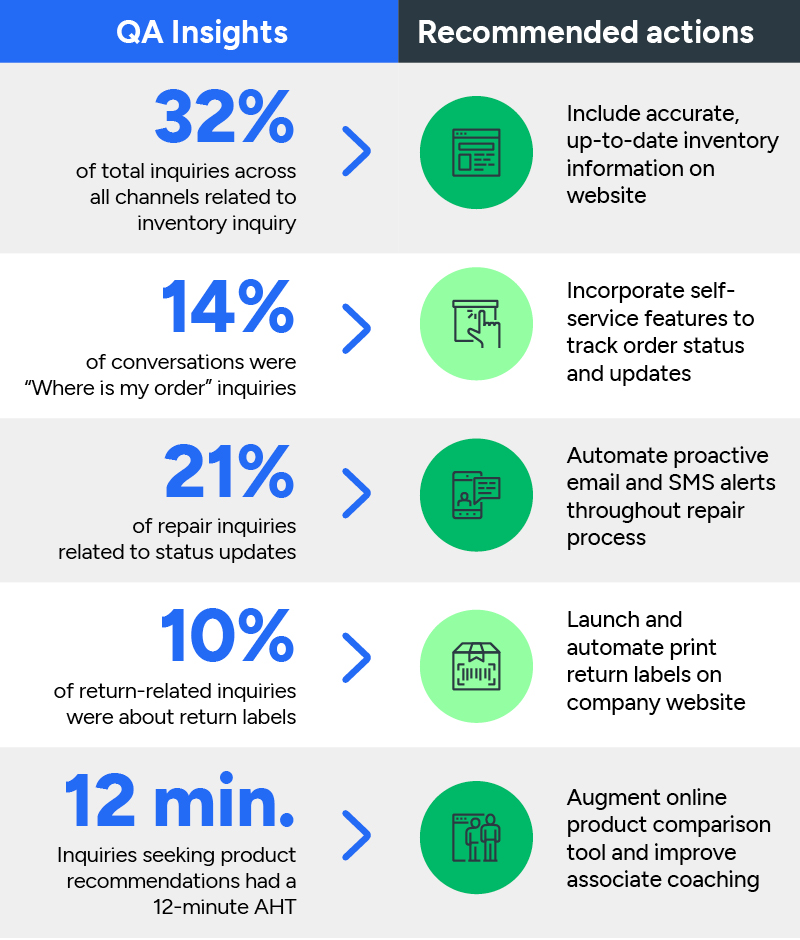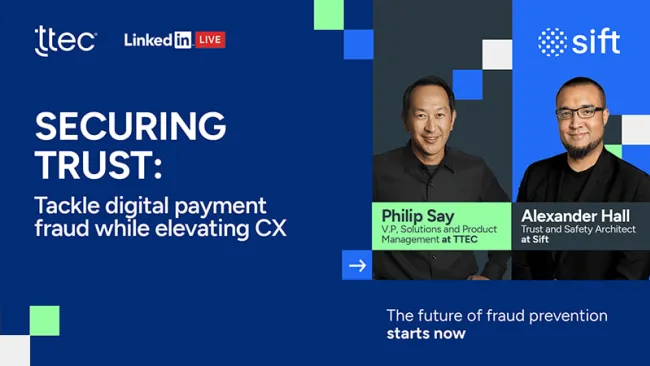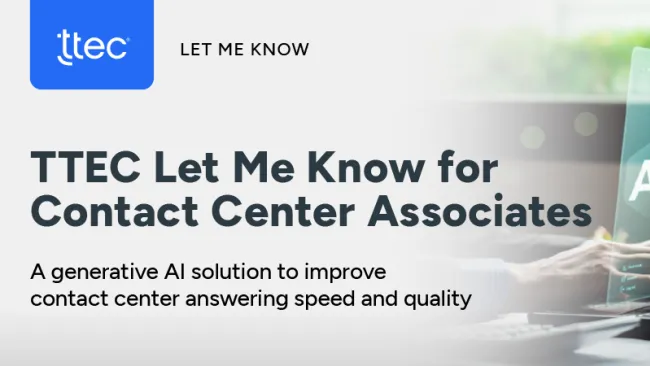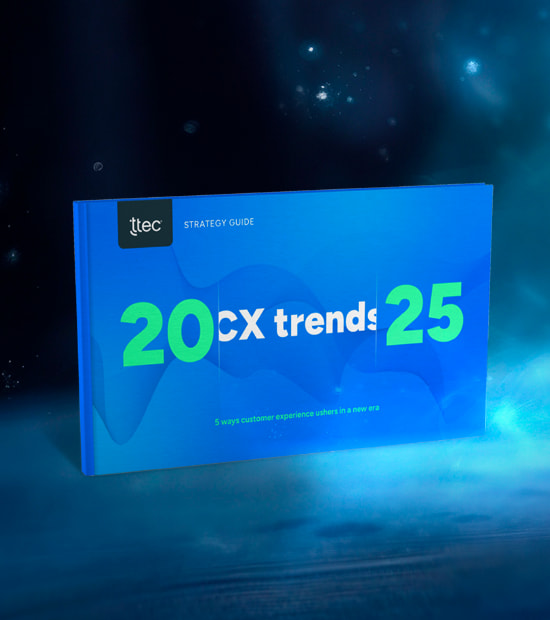
AI-powered insights (and experts putting them to work) revolutionize quality
TTEC disrupts the market with innovative, next-gen digital approach
AI-powered insights (and experts putting them to work) revolutionize quality
TTEC disrupts the market with innovative, next-gen digital approach
The challenge
A high-end retailer had traditional quality assurance (QA) measures in place, but the tools it relied on didn’t give a complete picture of customer sentiment. The brand used QA primarily to gauge compliance, missing out on its broader potential impact.
The brand collected information only from about 1% of their total customer interactions. This gave the company a very limited view of customer sentiment. Compounding the problem, the QA form it used didn’t correspond to KPIs the brand cared about most.
Employees had to manually review customer survey results to pull out insights and try to deduce feedback and coaching opportunities that could help improve associates’ performance.
Our solution
TTEC worked with strategic partner LevelAI to use AI-powered Next Generation Digital Quality to identify customer feedback, actionable insights, trends, anomalies, and sentiments in real time, from 100% of customer interactions. We implemented LevelAI’s next-gen digital quality insights tool to listen to and analyze 100% of customer interactions across all customer support channels: calls, chats, emails, and messaging.
The technology uncovered many trends and insights, including:
- 32% of total conversations across all channels were related to inventory inquiries, making it customers’ top reason for contacting the brand. These inquiries accounted for 19% of all negative interactions.
- 14% of all conversations were customers wanting to know where their orders were. Ten percent of those inquiries were repeat contacts who had already reached out about the same issue, and 12% of the interactions were negative.
- The baseline average handle time (AHT) for interactions where customers sought product recommendations was 12 minutes.
- 21% of inquiries about product repairs were from customers seeking status updates.
- 10% of interactions about returns were customers asking specifically about return labels, and 17% of those with return inquiries were repeat contacts.
The technology generating these insights was powerful, but it alone wasn’t enough to transform the retailer’s QA and customer experience. Once AI produced these findings, TTEC’s quality experts dug into the data, determining the root causes of these problems, pulling insights about how to resolve them, and suggesting recommendations to alleviate them.
With a team of people ready to act on these AI-derived insights, we suggested various improvements to the retailer, including:
- Incorporating self-service features to track order status and updates
- Displaying accurate, up-to-date inventory information on its website
- Simplifying the order and delivery process for items
- Improving AHT monitoring and associate coaching
- Automating email and SMS alerts regarding repairs
- Letting people print their own return labels from the company website

The results
Our work for the company not only produced measurable results; it reframed how the company thought about quality. Historically, the retailer had thought of quality as merely a tool to manage compliance and ensure associates were hitting certain metrics. With our guidance, the company started using digital quality in a much more meaningful way, to listen to the voice of the customer and glean actionable insights.
By combining AI-powered insights with human digital quality experts, we were able to identify problems more quickly and resolve them faster.
Our work identified $489,000 in potential annualized savings. Also, the AI-enhanced coaching we helped implement led to an increase in associate empathy and apology scores.
We also made associate coaching more efficient and beneficial, reducing by 60% the amount of time it took team leads to find coachable interactions. We reduced the time it took to extract coaching data by 94 hours per month, by changing it from a manual process to an automated one. And we automated the categorization of 100% of interactions by intent, giving the brand a clearer picture of all customers’ needs.












